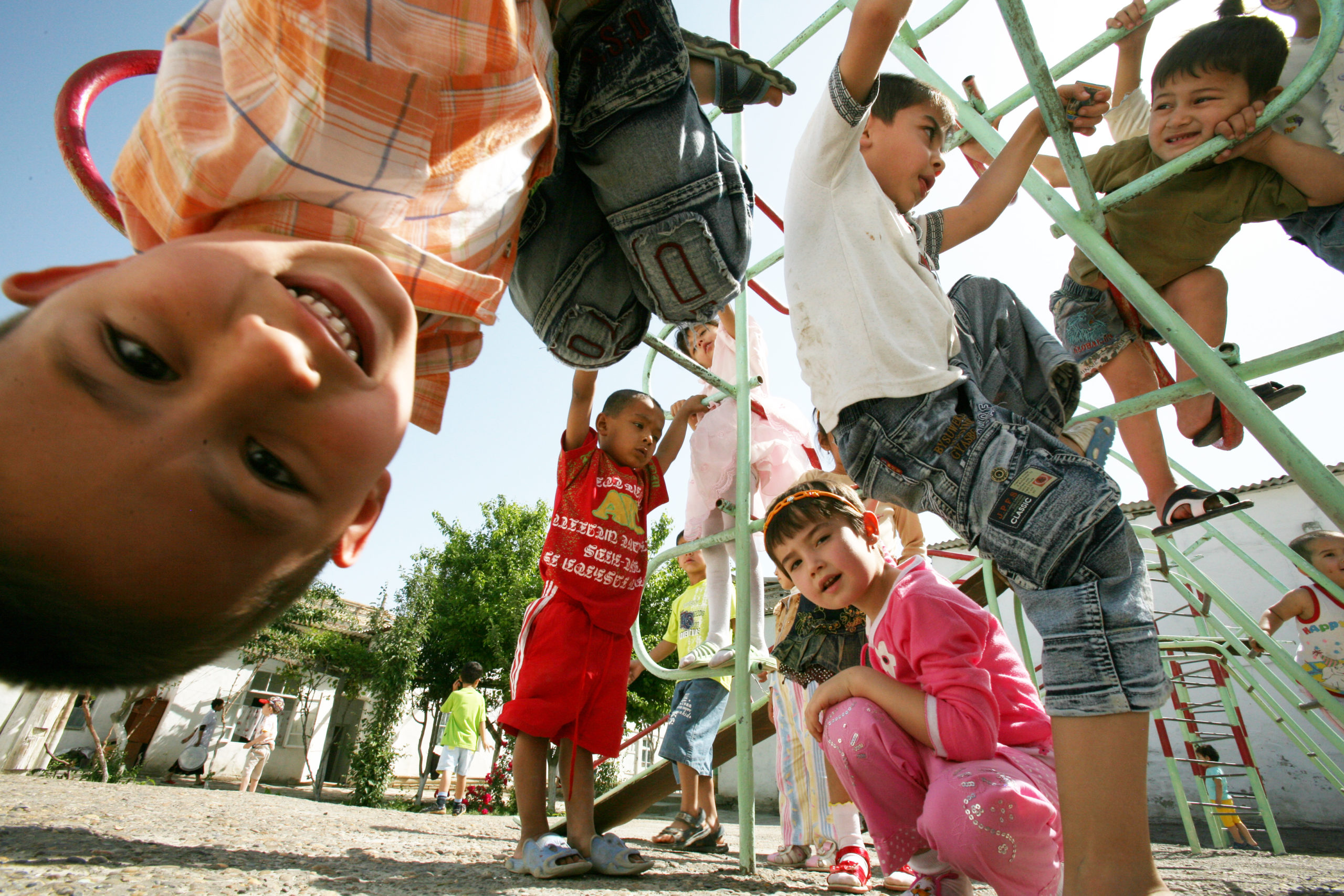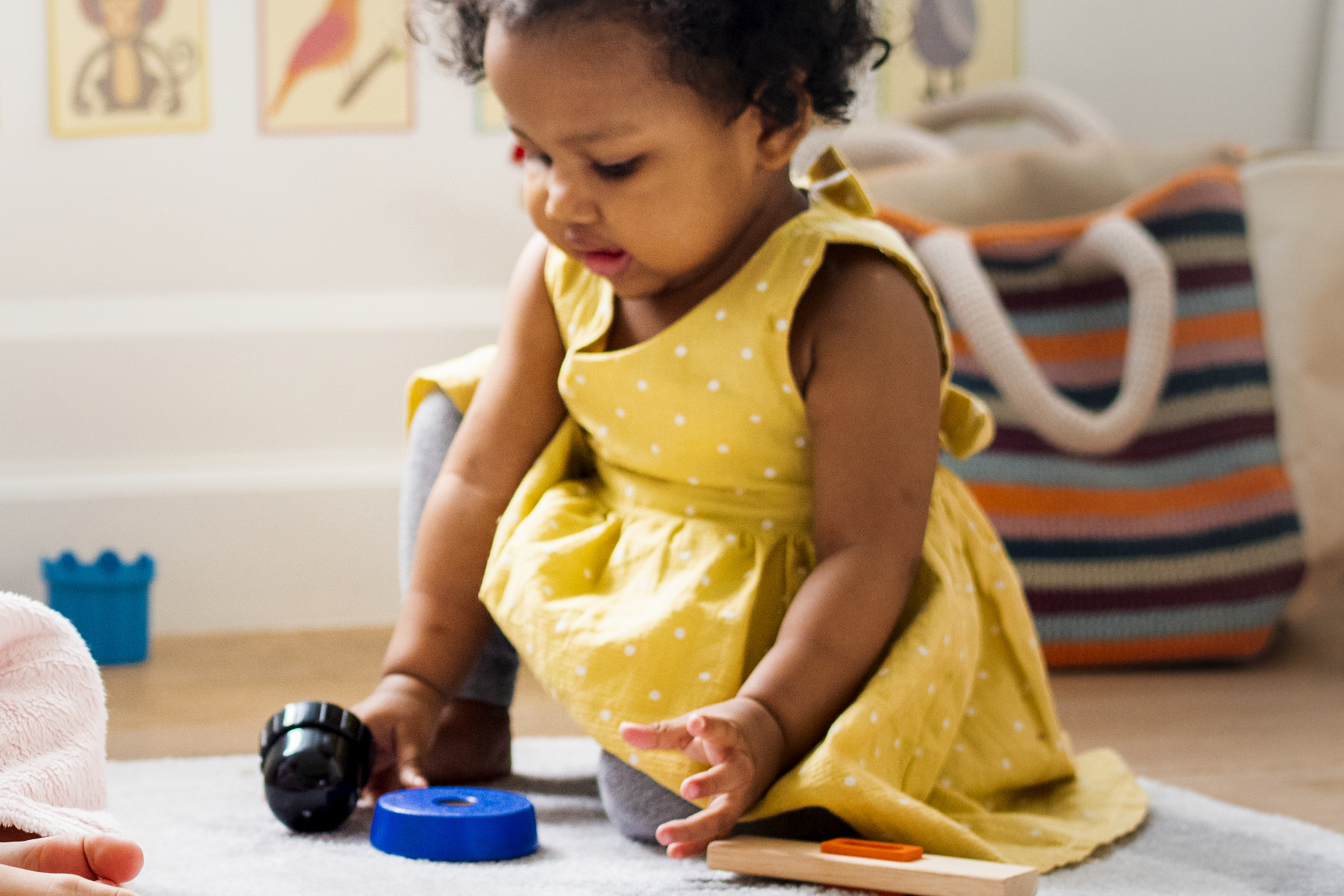
Recently, I was walking by a playground of children playing in Paris, France. The sounds of the play could have been happening in China, Holland, or Tulsa, Oklahoma.
Because the fact is, all children are wired for play. It’s one of the universal drives inherent in human nature.
In fact, one of the MOST important truths about play is that it serves the individual developmental needs of each child.
Yep, it’s not ONLY about “fun” — it’s about developing crucial skills and learning.
Think about it. Children are born knowing how to play:
- A three-month-old baby sees an object of interest and follows it with eyes.
- A six month old baby sees an object of interest and reaches for it.
- A nine month old holds an object of interest and passes it back and forth from one hand to another.
- A twelve month old sees an object of interest and crawls to it or pulls up on a coffee table to grab it.
Interest drives development.
We intuitively know and understand that babies' interests are driving the development of important fine and gross motor skills. We delight in their delight.
What I find so fascinating is that we abandon this notion as young children become more articulate.
- Why is a four year-old’s interest in play no longer important?
- Why are we asking kindergarteners to sit still in their chairs and listen without becoming restless?
- Where in the heck did we get the idea that worksheets are better for a budding mind than play?
Yes. I hear some of you saying that a four year-old can count, whereas a 3 month-old can not.
This is true — but does it mean that we should ignore interest?
The truth is that PLAY is what develops a child’s physical, emotional and mental growth.
And if you observe children at play – you can see the cognitive development in motion, and you can also observe how their individual developmental needs are served by their unique interests:
A four year-old sees a peg in styrofoam and picks up the mallet and pounds it deep into the styrofoam. A fascination with force arises out of an interest in play.
A five year-old is obsessed with superheroes. She goes to the art center to create a superhero shield. A love of designing and constructing play props arises out of an interest in play.
A six year-old is deeply fascinated by insects. He asks his teacher for a blank book so he can write and illustrate a book for his friends. A passion for writing arises out of an interest in play.
It is here, in the child’s interest, that we are given an undeniable force to scaffold and facilitate the remarkable — to shape the future!
We don’t know exactly how a child’s play interests will someday translate into the contributions they make to the world, but we can be the springboard that provides them EVERY opportunity to pursue what makes them special and unique.
Watch. What interests are driving the growth of the children who are in your care? Remember that YOU play a crucial part in the unfolding of their life.
Interest… play… WONDER. These are the most powerful forces of growth in human beings.
As a Wonder Warrior, never forget that YOU are shaping the future.
Have you registered yet for the Free to Play Summit? Join me and take your play-based practice deeper. Find all the details here.




I really agree with this article as a whole, I am currently a second-semester student in an ECE program and we’ve been learning how important PLAY is to a child’s development. I’m really excited to apply all that I have been taught in an actual childcare environment and not just from my laptop screen.
I came across your blog and I have to say, this is very interesting! Play is the most important part of a child’s development I would say and it does support them in physical, social, emotional, cognition and communication domains. A positive outlook towards the profession of working with children and a reminder that we are helping to shape the future. Thanks for sharing!